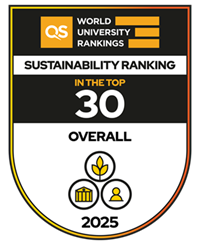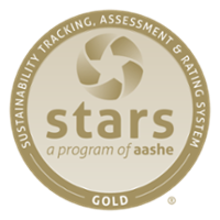Exploring Impact

Rankings at a Glance
Sustainability rankings, such as the Times Higher Education (THE) Impact Rankings and QS Sustainability Rankings, evaluate universities' contributions to global challenges through the United Nations Sustainable Development Goals (SDGs). Understanding ranking methodologies is key to interpreting their results. They each use various quantitative and qualitative criteria, including research, education, outreach, and operations, with different weightings, to assess efforts in areas like climate action, social equity, and overall sustainable development.
At Western University, we excel in areas aligned with our sustainability strategies, including impactful research, education, and community engagement. Rankings provide valuable insights, and where they highlight opportunities for growth, we analyze the data to guide improvements. However, rankings are only one aspect of our broader commitment to advancing sustainability and addressing global challenges. It’s important to consider an institution’s overall approach to sustainability, from campus initiatives to long-term impacts. Western is currently engaging in campus-wide consultations as part of the efforts to design and execute a climate and sustainability strategy to be finalized in fall 2025. This strategic plan will determine our institutional priorities related to sustainability.
Performance Highlights
Western University ranks among the top 1% globally, placing 14th overall in the 2025 Times Higher Education (THE) Impact Rankings, which assess universities on their contributions to the UN Sustainable Development Goals (SDGs). Recognized for excellence in research, teaching, outreach, and operations, Western ranks in the top 100 for 14 SDGs and the top 50 for 10 SDGs, showcasing its leadership in sustainability.
- SDG 2 (Zero Hunger): 3rd in North America, 13th globally
- SDG 3 (Good Health & Wellbeing): 2nd in North America, 15th globally
- SDG 8 (Decent Work and Economic Growth): 1st in North America, 11th globally
- SDG 14 (Life Below Water): 4th in North America, 5th globally
- SDG 16 (Peace, Justice, and Strong Institutions): 2nd in North America, 3rd globally
The QS (Quacquarelli Symonds Limited) World University Rankings: Sustainability 2025, evaluate nearly 1,800 institutions on their efforts to address environmental, social, and governance (ESG) challenges. Western University ranks among the top 2% globally, placing 30th worldwide, 9th in the Americas, and 4th in Canada, while also being the only Canadian institution to achieve the prestigious “Five Stars Plus” status in the QS Stars University Ratings.
- Environmental Impact (45% of the total score): Ranked 40th globally, combining indicators on environmental education, environmental research, and environmental sustainability.
- Social Impact (45% of the total score): Ranked 48th globally, encompassing indicators on employability and opportunities, equality, health and well-being, impact of education, and knowledge exchange.
- Governance (10% of the total score): Ranked 36th globally, focusing on ethics, hiring practices, transparency, and decision-making processes.
About AASHE STARS
The Sustainability Tracking, Assessment & Rating System™ (STARS®), developed by the Association for the Advancement of Sustainability in Higher Education (AASHE), is an internationally recognized framework for assessing sustainability in higher education. It is a transparent, self-reporting system that helps institutions measure and improve their sustainability performance across a wide range of categories.
Western's STARS Achievements
Western University has been a proud participant in the STARS program since 2011, achieving Gold status consistently since 2014. This recognition reflects performance across more than 110 areas, encompassing academics, engagement, operations, and planning. In 2025, Western earned its fourth consecutive Gold STARS rating under the more stringent STARS V3.0. Western continues to aim for the prestigious Platinum level, achieved by only a select few institutions worldwide.


